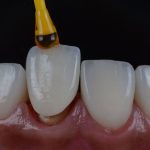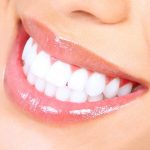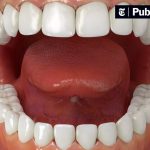Why Do Your Teeth Hurt When You’re Sick? Explained by Dentists
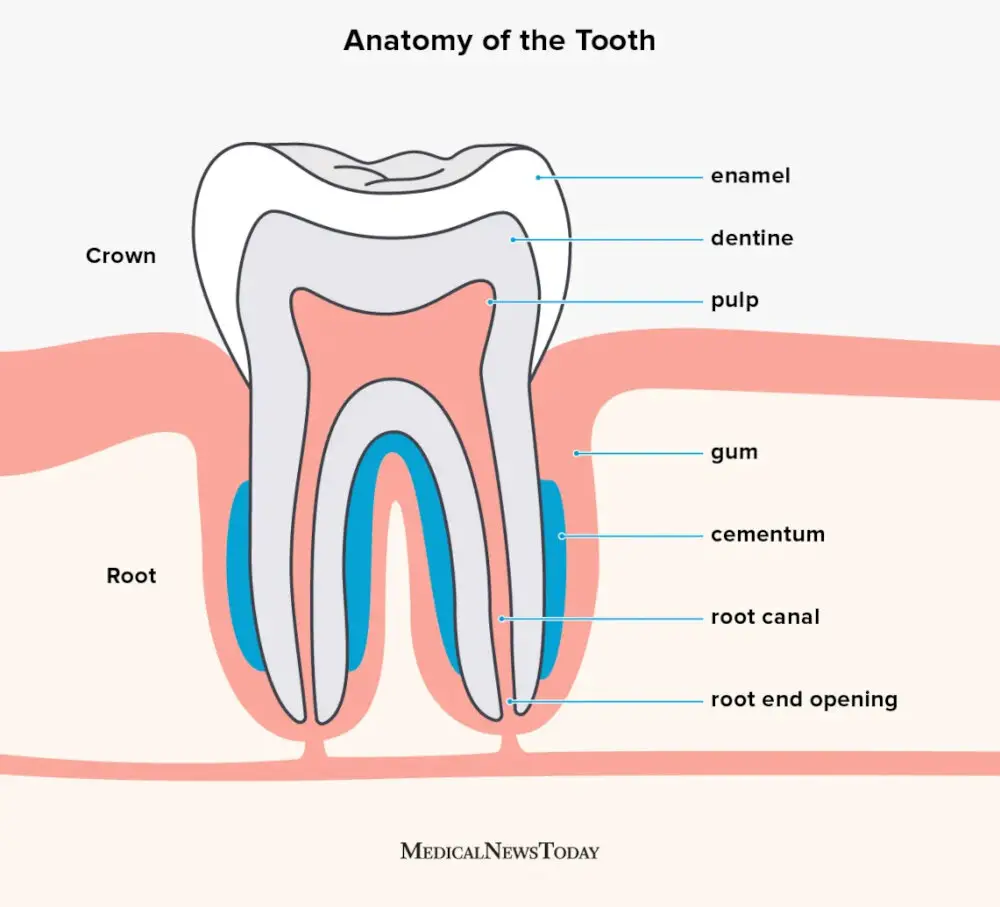
Have you ever experienced tooth pain or sensitivity while you were fighting off an illness? It’s not uncommon to have toothaches or discomfort in your mouth when you’re sick, and it’s not just your imagination. In fact, several factors can contribute to the connection between your overall health and your oral health. Dentists have long recognized the link between your body’s health and the condition of your teeth and gums. When you’re sick, your immune system is working overtime to fight off the infection, and this can cause oral health issues to arise. In this article, we’ll explore some of the common reasons why your teeth might hurt when you’re sick, as well as what you can do to alleviate the discomfort and keep your mouth healthy.
When we are sick, our bodies are busy fighting off the infection or illness. This can cause inflammation and swelling in different parts of the body, including the sinuses and gums. When the sinuses are inflamed, they can put pressure on the roots of the upper teeth, causing pain and discomfort. Similarly, when the gums are swollen, they can create pressure on the teeth, leading to sensitivity and pain. Additionally, some illnesses can cause dehydration, leading to dry mouth and a decrease in saliva production. This lack of saliva can make the teeth more vulnerable to decay and sensitivity, leading to pain and discomfort. Therefore, it is important to take care of our oral health, especially when we are sick, to prevent further complications and discomfort.
Maintaining dental health is crucial during illness, as the body’s immune system is already weakened and vulnerable to infections. When we fall ill, our oral health is often neglected, leading to dental pain and discomfort. This is because the bacteria that cause dental decay and gum disease thrive in an acidic environment, which is created when we consume sugary or acidic foods and drinks while we are sick. Additionally, medications taken during an illness can cause dry mouth, which reduces saliva production and contributes to the growth of bacteria. Therefore, it is important to continue to practice good oral hygiene habits, such as regular brushing and flossing, and to stay hydrated by drinking plenty of water, even when we are feeling unwell.
How Illness Affects Teeth
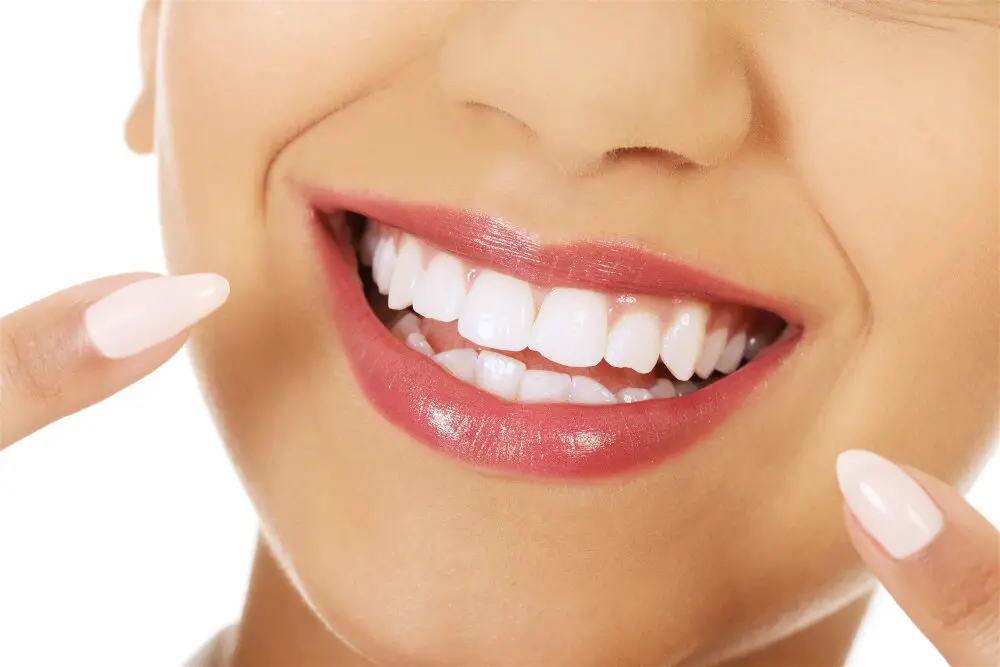
Illness can have a significant impact on the health and appearance of our teeth. When we are sick, we often neglect our oral hygiene, which can lead to a buildup of bacteria and plaque. These harmful substances can cause tooth decay, gum disease, and other dental problems. Additionally, when we are ill, we may be more likely to consume sugary or acidic foods and drinks, which can also damage our teeth. Furthermore, some illnesses, such as acid reflux, can cause stomach acid to rise into the mouth, which can erode tooth enamel and lead to sensitivity and decay. Overall, it is essential to maintain good oral hygiene and avoid harmful foods and drinks, especially when we are sick, to preserve the health and appearance of our teeth. Moreover, certain medications that are commonly used to treat illnesses can also have negative effects on our teeth. For example, many antibiotics can cause staining or discoloration of the teeth, while certain asthma medications can cause dry mouth, which can increase the risk of tooth decay and gum disease. Chemotherapy and radiation therapy can also have significant impacts on oral health, including dry mouth, gum irritation, and infection. Therefore, it is important to inform your dentist of any medications you are taking and to discuss any potential side effects on your oral health. By being proactive and taking care of our teeth, even when we are sick or undergoing treatment, we can maintain a healthy and beautiful smile for years to come.
Illness has a profound impact on the human body, both in the short and long term. When an individual is sick, their immune system is working overtime to fight off the infection or disease, which can leave the body feeling weak and fatigued. Additionally, illness can cause inflammation throughout the body, leading to aches and pains in various areas. This inflammation can also affect the teeth, causing pain or sensitivity. Furthermore, some illnesses, such as the flu, can cause dehydration, which can lead to dry mouth and decreased saliva production, increasing the risk of tooth decay and gum disease. Overall, it is important to prioritize oral hygiene and dental care, especially during times of illness, to prevent further complications and discomfort.
Dehydration and dry mouth can have a significant impact on the health of your teeth. When your body is dehydrated, it produces less saliva, which is essential for removing food particles and bacteria from your mouth. Saliva also helps neutralize acids produced by bacteria, which can erode tooth enamel and lead to decay. Without enough saliva, your mouth becomes an ideal breeding ground for harmful bacteria, which can cause tooth decay, bad breath, and gum disease. Additionally, when you’re dehydrated, your body may not have enough fluid to keep your gums healthy, which can lead to receding gums and tooth sensitivity. Therefore, it is crucial to stay hydrated and maintain good oral hygiene to keep your teeth and gums healthy.
Sinus pressure can cause tooth pain due to the close proximity between the maxillary sinus and the roots of the upper molars. When the sinuses become inflamed or infected, this can cause pressure to build up in the sinus cavities, which can then put pressure on the roots of the teeth. This pressure can cause pain or discomfort in the affected teeth, often causing patients to mistake it for a dental issue. Additionally, sinus infections can cause mucus build-up, which can create a breeding ground for bacteria and lead to tooth decay or gum disease if left untreated. Therefore, it is important to seek medical attention if you are experiencing tooth pain in conjunction with sinus symptoms.
Medications and Dental Health
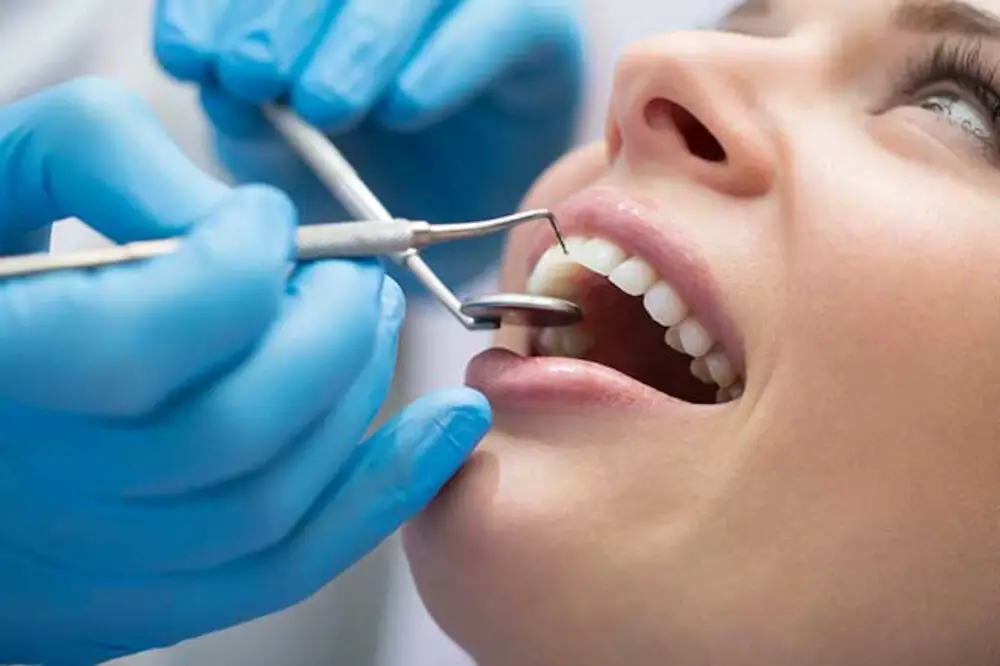
Medications and dental health are closely related to each other. Many medications have side effects that can directly affect your teeth and gums. For example, some antibiotics can cause discoloration of the teeth, while others can cause overgrowth of the gums. Similarly, some medications can cause dry mouth, which can lead to tooth decay and gum disease. It is important to inform your dentist of any medications you are taking, so they can help you manage any potential side effects. Furthermore, certain medications can also interact with dental treatments. For instance, blood-thinning medications can increase the risk of bleeding during dental procedures, while some medications can interfere with the effectiveness of local anesthesia. Your dentist needs to know about any medications you are taking so that they can take necessary precautions during dental treatments. In some cases, they may even need to adjust your medication or refer you to your physician for further evaluation. Therefore, it is crucial to keep your dentist updated on any changes in your medication regimen to ensure optimal dental health.
During illness, various medications are commonly used to alleviate symptoms such as fever, pain, and congestion. For example, nonsteroidal anti-inflammatory drugs (NSAIDs) such as ibuprofen and acetaminophen are often used to reduce fever and relieve pain. Decongestants such as pseudoephedrine can help to clear nasal passages and relieve sinus pressure. Antihistamines such as loratadine and diphenhydramine can help to reduce allergy symptoms such as sneezing and runny nose. Antibiotics may also be prescribed for bacterial infections. However, it is important to follow the instructions of a medical professional when taking any medication, as they may have potential side effects or interactions with other medications.
When you’re feeling under the weather, it’s not uncommon to experience dental pain and discomfort. There are several reasons for this, including side effects from medications or dehydration from illness. Antibiotics and other medications can cause dry mouth, which can lead to an increase in tooth decay and gum disease. Additionally, vomiting and acid reflux can erode enamel and cause tooth sensitivity. It’s important to stay hydrated and maintain good oral hygiene when you’re sick to prevent further damage to your teeth and gums. If dental pain persists, it’s always best to consult with a dentist to determine the underlying cause and receive appropriate treatment.
When feeling unwell, it’s common to take medication to alleviate the symptoms. However, it’s essential to speak with a dentist before taking any medication, as some drugs can have adverse effects on teeth and gums. For instance, certain painkillers and antibiotics can cause dry mouth, which can lead to tooth decay and gum disease. Furthermore, some medications can interfere with dental procedures, such as extractions or implants, and increase the risk of complications. Therefore, consulting with a dentist beforehand can help identify potential risks and address any concerns, ensuring optimal oral health during and after taking medication.
Tips for Maintaining Dental Health During Illness
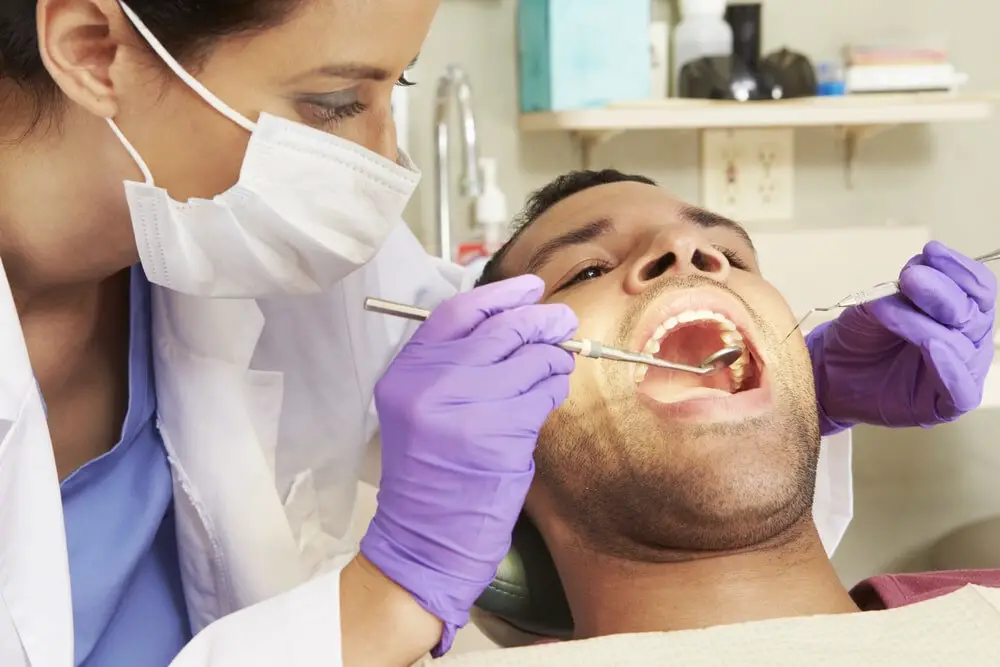
Maintaining good dental hygiene is crucial to keeping your teeth and gums healthy. However, it can be challenging to keep up with dental care when you’re feeling under the weather. When you’re sick, your body is focused on fighting off the infection, which can make it difficult to maintain your oral health routine. To help keep your teeth and gums healthy during an illness, there are a few tips you can follow. Firstly, make sure you’re brushing your teeth at least twice a day with a soft-bristled toothbrush. If you’re feeling weak or tired, try sitting down while brushing to avoid getting dizzy. Additionally, flossing at least once a day is essential to remove any food particles that may be stuck between your teeth. If you’re too weak to floss, consider using an interdental brush or a water flosser. Lastly, be sure to drink plenty of water to keep your mouth hydrated and rinse your mouth with water after vomiting to remove any stomach acid that may have come in contact with your teeth. Another essential tip for maintaining dental health during illness is to avoid sugary and acidic foods and drinks. Bacteria thrive on sugars and can cause tooth decay, so it’s best to avoid sugary snacks and drinks while you’re ill. Acidic foods and beverages can also erode tooth enamel, so avoid citrus fruits, juices, and sodas. Instead, choose water, herbal tea, or broth to stay hydrated. If you do consume sugary or acidic foods, be sure to brush your teeth or rinse your mouth with water afterward to remove any residue. Lastly, if you’re taking medication, be aware that some medications can cause dry mouth, which can increase your risk of tooth decay. To combat dry mouth, try chewing sugar-free gum or sucking on sugar-free candies to stimulate saliva production. If you’re concerned about the effects of medication on your dental health, speak with your dentist or physician for advice.
Maintaining good dental hygiene is crucial during illness as it can prevent further complications and discomfort. When we are sick, our immune system is already weakened, and neglecting our oral health can lead to the growth of harmful bacteria and infections. Brushing and flossing regularly can help to remove harmful bacteria and food particles that may contribute to tooth decay and gum disease. Additionally, staying hydrated and avoiding sugary or acidic foods and drinks can help to protect our teeth and gums. Good oral hygiene can also help to alleviate tooth pain that may worsen during illness, providing some much-needed relief during an already uncomfortable time. Therefore, it is important to prioritize dental hygiene during illness to maintain overall health and well-being.
When feeling sick, maintaining dental health is often the last thing on our minds. However, it is crucial to keep up with dental hygiene to prevent any additional discomfort. One tip is to use a soft-bristled toothbrush to brush gently and avoid any irritation to the gums. Another tip is to rinse your mouth with saltwater to reduce inflammation and kill bacteria. Drinking plenty of water and avoiding sugary drinks can also help prevent tooth decay. Remember to continue to floss daily to remove any trapped food particles, which can cause bad breath and tooth decay. Lastly, if you experience tooth pain or sensitivity, it is best to contact your dentist to rule out any underlying dental problems.
When you’re feeling under the weather, it’s important to maintain good oral hygiene by brushing and flossing regularly. But did you know that there are certain foods and drinks that can also promote dental health during illness? Foods high in vitamin C, such as citrus fruits and berries, can help boost your immune system and prevent gum disease. Dairy products like yogurt and cheese are also great options, as they contain calcium and phosphates that can help strengthen tooth enamel. Additionally, drinking plenty of water and herbal teas can help flush out harmful bacteria and keep your mouth hydrated, which is essential for maintaining overall dental health. By incorporating these foods and drinks into your diet, you can help protect your teeth and gums while you recover from illness.
When to See a Dentist
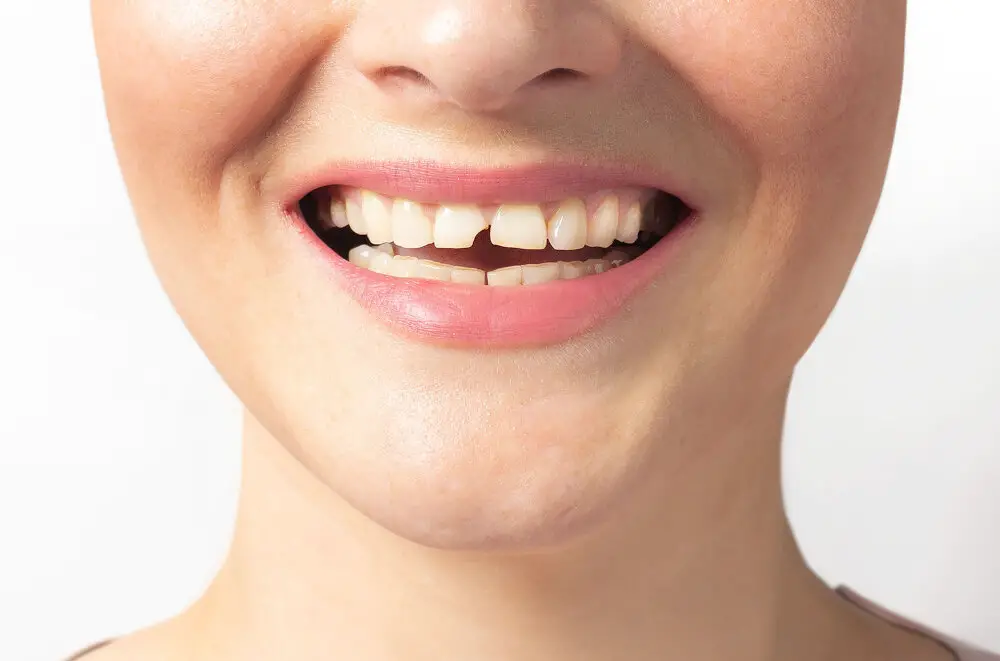
When to See a Dentist:It is essential to see a dentist regularly, even if you don’t have any pain or discomfort. However, if you experience any tooth pain or discomfort, it is crucial to see a dentist as soon as possible. Tooth pain can be a sign of tooth decay, gum disease, or infection. Ignoring tooth pain can lead to more severe dental problems, such as root canals and extractions. A dentist can diagnose the problem and provide the appropriate treatment to alleviate the pain and prevent further damage. In addition to tooth pain, there are other signs that indicate the need to see a dentist. These include bleeding gums, sensitivity to hot or cold foods, and bad breath. Bleeding gums can be a sign of gum disease, which can lead to tooth loss and other serious health problems. Sensitivity to hot or cold foods can be a sign of tooth decay or a cracked tooth. Bad breath can be a sign of gum disease or other dental problems. If you experience any of these symptoms, it is essential to see a dentist as soon as possible to prevent further damage to your teeth and gums.
Dental pain can be a nuisance and often requires immediate attention. There are various symptoms that can indicate that a trip to the dentist is necessary. One of the most common signs is persistent pain, which can range from mild discomfort to severe throbbing that makes it difficult to carry out daily activities. Other symptoms include sensitivity to hot or cold foods and drinks, swollen gums, bleeding, and bad breath. In some cases, dental pain can be accompanied by a fever or a foul taste in the mouth. If any of these symptoms persist, it is essential to make an appointment with a dentist to diagnose the underlying cause and prevent further damage to the teeth and gums.
When we’re sick, dental issues may seem like the least of our worries. However, it’s important not to neglect oral health during illness. For one, many illnesses can cause dry mouth, which can lead to a buildup of bacteria and plaque that can cause tooth decay and gum disease. In addition, some medications used to treat illnesses can have side effects that impact oral health, such as causing gum inflammation or bleeding. Addressing dental issues during illness can also improve overall health and recovery, as oral infections can spread to other parts of the body and compromise the immune system. By taking care of our teeth and gums even when we’re feeling under the weather, we can help prevent further health complications and ensure a speedy recovery.
If you’re feeling ill and your teeth are hurting, it’s important to find a dentist who can help. One way to do this is to ask for recommendations from friends or family members, especially those who have had similar experiences. Another option is to check with your insurance provider to see which dentists are in your network. You can also use online resources such as Yelp or Google Reviews to read about the experiences of other patients at different dental offices. Once you’ve found a dentist, be sure to explain your symptoms and any relevant medical history so that they can provide the best care possible. Remember that dental pain can be a symptom of a larger health issue, so it’s important to address it promptly and with professional assistance.
When we are sick, our dental health can also be impacted in various ways. For instance, during an illness, our oral hygiene may take a backseat as we focus on other aspects of our health. This can lead to an accumulation of plaque and bacteria, which can result in tooth decay and gum disease. Additionally, some illnesses can cause dehydration, which can lead to dry mouth, a condition that can increase the risk of tooth decay and gum disease. Certain medications used to treat illnesses can also have side effects such as dry mouth or even cause changes in the bacteria in the mouth, leading to oral health issues. Finally, some illnesses can cause sinus pressure and congestion, which can lead to tooth pain and sensitivity. Therefore, it is essential to maintain good oral hygiene practices, even when ill, to prevent dental problems from arising.
Maintaining dental hygiene during illness is crucial not only for oral health but also for overall well-being. When we are sick, our body’s immune system is already working hard to fight off infections, and poor dental hygiene can weaken it further. Neglecting oral care during illness can lead to a buildup of harmful bacteria in the mouth, which can cause tooth decay, gum disease, and bad breath. Additionally, some illnesses, such as the flu, can cause dehydration, which can reduce saliva production, leading to dry mouth and an increased risk of tooth decay. Therefore, it is important to continue brushing and flossing regularly during illness to maintain good oral hygiene and support the body’s natural defenses.
If you are experiencing dental pain while being ill, it is essential to speak with a dentist. Dental pain can be a sign of an underlying problem, and it is crucial to address the issue immediately to prevent further damage. Your dentist can help determine the root cause of the pain and provide treatment options that will alleviate the discomfort. It is important not to ignore dental pain, as it can lead to more severe dental issues in the future. So, don’t hesitate to make an appointment with your dentist and take care of your dental health, especially during illness.
Conclusion
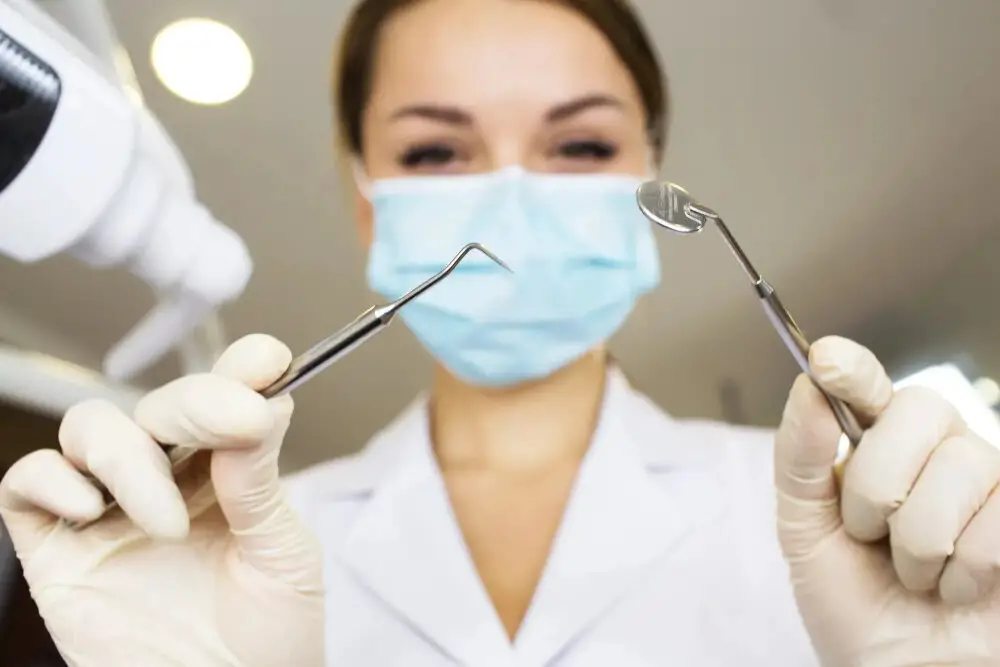
In conclusion, dental pain during sickness is a common phenomenon that occurs due to various factors. The body’s immune response to infections can cause inflammation and swelling in the oral cavity, leading to tooth pain. Additionally, dehydration, medication side effects, and poor oral hygiene can also contribute to dental discomfort during illness. It is crucial to maintain good dental hygiene and stay hydrated to prevent tooth pain during sickness. Seeking advice from a dentist can also be helpful in managing the pain and identifying underlying dental issues. Overall, taking care of your oral health is essential, especially during sickness, to ensure a speedy recovery and a healthy smile.



